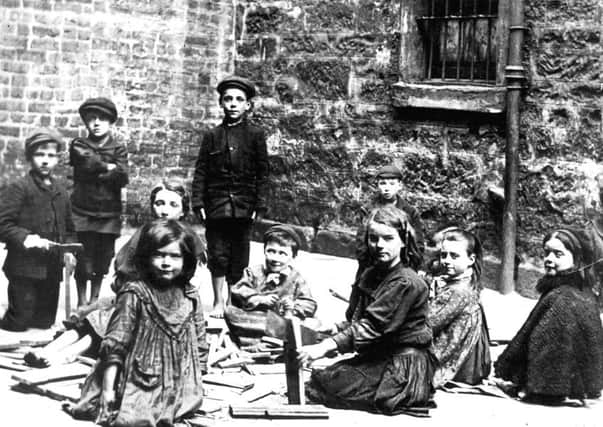Prof Hugh Pennington: Rowett Institute's work has done wonders for diet


The Rowett was founded in 1914 by John Boyd Orr (Nobel Peace Prize, 1949) to research animal nutrition.
But alleviating inadequate human diets became his aim.
Before training in medicine he taught children from Glasgow slums. Because they were malnourished they were stunted and rickety. Four hundred were killed every year by measles. In an outbreak every child was infected, but the mortality rate of those from single ends was six times more than those living in houses with four or more rooms.
Diet was the big difference.
Advertisement
Hide AdAdvertisement
Hide AdIt was the same for tuberculosis, except that it killed youngish adults. Its mortality rate peaked 50 years after the foundation of The Scotsman, but then fell steadily. It had dropped by 85 per cent before the introduction of anti-tuberculosis drugs a century later.
Cheap frozen mutton from the Antipodes and fish and chip shops were crucial.
Boyd Orr’s influence on food policy meant that during the Second World War we had an optimal diet. He said: “The rich people got less to eat, which did them no harm and the poor, so far as the supply would allow, got a diet adequate for health, with free orange juice, cod liver oil, extra milk and other things for mothers and children.”
How things have changed.
Attention still focuses on Scottish mothers from socially deprived areas, not because they need “other things”, but because they need less of them. The international and UK obesity statistics embarrass, even if US men outweigh us. Hospitals have had to buy super-strong bariatric operating tables, and crematoria bigger ovens.
So to address today’s Scottish culture problems, the Rowett works on the social science of consumption, tries to find out why some people go on eating when they are full, as well as investigating the molecular biology of fat cells.
The benefits that come from eating Scottish farmed salmon and devising helpful diets for the elderly are on the agenda too.
The Rowett has a strong tradition of maintaining a broad research programme that studies issues in depth. Its current work on protein breakdown products can be traced back to Richard Synge, hired from the Wool Research Association Laboratories in Leeds in 1948 to work on protein digestion. He won the Nobel Prize for Chemistry in 1952.
It is safe to say that Boyd Orr would be happy about what the Rowett is doing today. Brexit would please him too.
Advertisement
Hide AdAdvertisement
Hide AdIn 1966 he said: “I am opposed to the Common Market which if Britain joined, would bring this country within the control of a European group dominated by Germany.”
A Scottish patriot, who once sang “Glasgow belongs to me” with Isaac Woolfson in the lobby of a Moscow hotel, he was no nationalist.
Disillusioned with the UN, he gave some of his Nobel winnings to the World Federalist Movement.
Professor Hugh Pennington is an emeritus professor of bacteriology at the University of Aberdeen